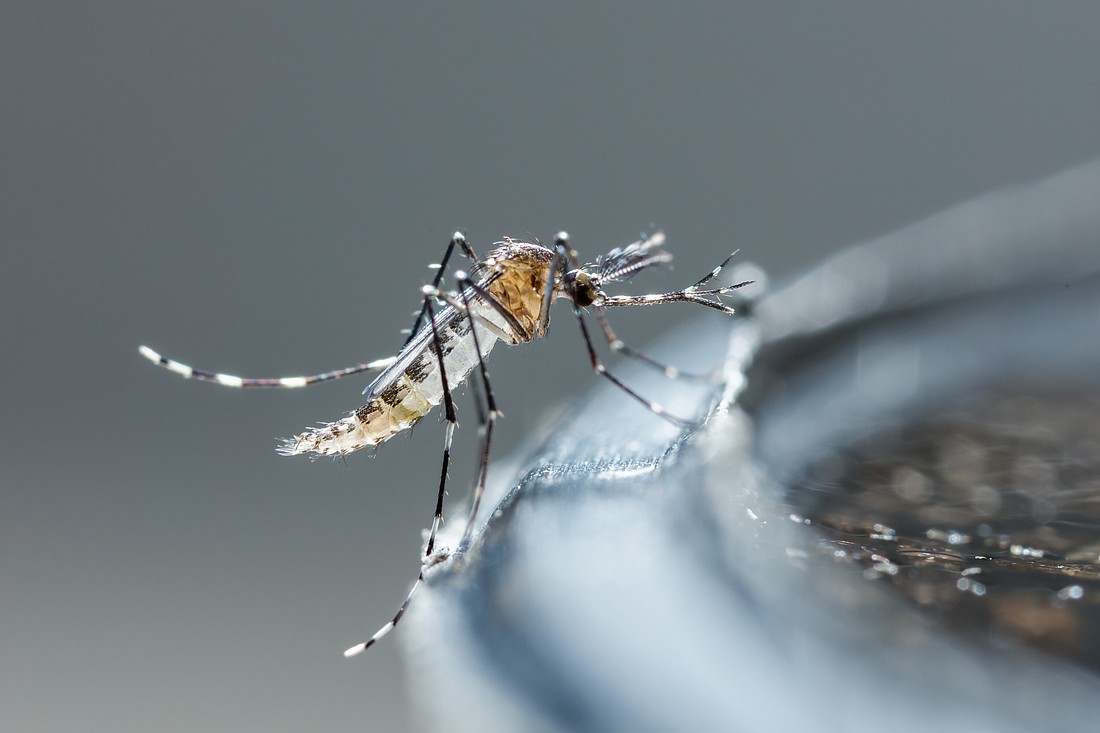- July 26, 2024
-
-
Loading

Loading

Extensive rains, flooding and scattered debris that hold water can lead to mosquito development.
“An increase in mosquito numbers can potentially be expected in the weeks following the extensive rain events that took place in South Florida last week,” said Eva Buckner, an assistant professor and medical entomologist at the University of Florida’s Institute of Food and Agricultural Sciences.
Buckner, a specialist at UF/IFAS Florida Medical Entomology Laboratory in Vero Beach, remains in close contact with many of Florida’s more than 65 mosquito control programs providing training, solutions and information on topics such as mosquito insecticide resistance, mosquito-borne diseases, integrated mosquito management and more. She also educates the public on how to prevent mosquito bites.
Buckner offers the following facts and tips to help keep residents from getting bitten, eliminate mosquito production sites during flood recovery, and dispel myths about mosquito-borne diseases.
Can flooding promote mosquito population growth?
Yes. Flooding can cause mosquito eggs laid in the soil by floodwater mosquitoes during previous floods to hatch. This can result in very large populations of floodwater mosquitoes. Most of these mosquitoes are considered nuisance mosquitoes because they are primarily annoying biters that do not transmit any viruses to humans. Additionally, if floodwaters do not recede, standing water mosquitoes may start laying eggs on the standing waters.
Do some of these mosquitoes carry viruses such as Zika and West Nile?
In general, floodwater mosquitoes are just considered nuisance mosquitoes, except for Aedes aegypti, the yellow fever mosquito. This species can transmit chikungunya, Zika and dengue virus.
In Florida, this species can be found in some suburban and urban areas in the peninsular portion of the state. In areas with Aedes aegypti, increased rainfall may result in increased hatching of Aedes aegypti eggs from water-holding containers.
We’ve had no travel-related cases of chikungunya or Zika this year, so no transmission of these viruses is expected. However, the risk of getting infected with dengue virus from Aedes aegypti may be slightly increased in areas where this mosquito species and travel-related dengue cases occur (such as) Miami-Dade County. Sixty travel-related dengue cases have been documented in Miami-Dade County so far this year.
Also, some species of standing water mosquitoes can transmit West Nile virus, so steps should be taken to protect from mosquito bites.
What steps can residents take to protect themselves from mosquito bites?
The most important tip to remember is to use Environmental Protection Agency-registered insect repellents with one of the following active ingredients: DEET, picaridin, IR3535, oil of lemon eucalyptus (OLE), para-menthane-diol (PMD), or 2-undecanone. Wearing loose-fitting, long-sleeved shirts and pants can also help protect from mosquito bites.
What steps can residents take to control mosquitoes around their homes?
Dumping water from water-holding containers commonly found surrounding homes, such as pet dishes, vases, buckets, toys, flowerpot saucers and cans is recommended for reducing mosquito production. You can help reduce your risk of diseases just by dumping or treating water-holding containers. Use granules, pellets or dunks containing Bacillus thuringiensis subspecies israelensis (Bti) bacteria to kill immature mosquitoes in water-holding containers that cannot be drained easily like birdbaths or bromeliads. Bti-treated water is safe for animals to drink. Bti products can be purchased at hardware or box stores. For vast water sources, it is best to leave the source reduction and treatment to the mosquito control agencies. Contact your local mosquito control program to ask for treatment request. For more information, please see Mosquitoes and Their Control: Integrated Pest Management for Mosquito Reduction around Homes and Neighborhoods.
The mission of the University of Florida Institute of Food and Agricultural Sciences (UF/IFAS) is to develop knowledge relevant to agricultural, human and natural resources and to make that knowledge available to sustain and enhance the quality of human life. With more than a dozen research facilities, 67 county Extension offices, and award-winning students and faculty in the UF College of Agricultural and Life Sciences, UF/IFAS brings science-based solutions to the state’s agricultural and natural resources industries, and all Florida residents.